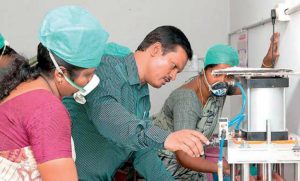Empowering females through frugal innovation; a celebration of International Women's Day.
Why is International Women's Day so important?
‘International Women’s Day, a day to celebrate socioeconomic, cultural and political achievement of women’, giving silenced women a voice. International Women's Day recognises and celebrates the courage of women living in countries where their freedoms are restricted; women who dare to stand up for equal rights. It is often the case that women face adversity in many places across the world, therefore global action is required to encourage gender parity. Moreover, it makes sense to empower one half of the world’s consumers.
In many cases innovation is key to progress. A creative mind makes a unique and innovative connection that others do not. It sends a powerful message to others that they too have something important to offer.
What is Frugal Innovation?
In India, where opulent wealth lives cheek by jowl with grinding poverty, innovation is critical to help bridge the gap, especially when faced with global challenges such as climate change and sustainable development. This is where frugal innovation comes into its own. A marketer would tell you that frugal innovations are ‘value-sensitive design and marketing strategies that bring clever products, made from limited resources, within the reach of billions of poorer consumers’. But that does not tell the real story. Frugal innovation is the triumph of the creative spirit and remarkable ingenuity in the face of seemingly intractable difficulties. Crucially, frugal innovation is giving women the opportunity to compete on equal terms with men.
There are many inspirational examples of women who have overcome defensive opposition and angry adversity to improve the lives of millions through their creative efforts. Ironically, however, sometimes the same barriers that prevent women from giving life to their creative instincts are put in the way of men as well. This brings us to the remarkable story of Arunachalam Muruganantham’s Sanitary Napkin Machine.
The story of Arunachalam Muruganantham’s Sanitary Napkin Machine
In 2011, according to the Indian Times, the Indian Government commissioned a survey by AC Nielsen which found that only 12% of women across India use sanitary pads. High infection rates, social stigmatism, and, in some cases, cruel and humiliating ostracism are the fate of the other 88%. The effects are not just physical and emotional because 23% of young girls drop out of education. This is due to lack of affordable sanitation products and lack of toilet facilities that affect their mobility. So, social and educational advancement of women are victims too. In fact, poor menstrual hygiene causes approximately 70% of all reproductive diseases in India. It can also have a devastating effect on maternal mortality.
In this context, Muruganantham showed remarkable fortitude, tenacity, and enlightenment in the face of almost insuperable resistance. This was to bring about hygiene awareness and empowerment of women in Indian villages from Tamil Nadu to Madhya Pradesh, to Bihar and Uttarakhand. Muruganantham, a social entrepreneur from Tamil Nadu, developed a machine that produces quality sanitary napkins at a low cost. This minimalistic and simple to use machine uses basic raw materials which cuts down the cost of manufacturing. This also makes it easy for the women to maintain the machines themselves.
Creating jobs for women
The machine has created jobs for rural women, in addition to the significant increase in the use of sanitary pads. It has also empowered women to make low cost sanitary pads for their own use and sell them to other women. Moreover, these women can provide valuable information on how to use them. Some school girls are now making their own sanitary pads.
Sadly, Muruganantham's invention came at great personal cost - he nearly lost his family, his money and his place in society. However, despite the intense and occasionally violent resistance caused by ingrained cultural bias, Muruganantham's machine has now been accepted in 1,300 villages, in 23 states, across India. The machine has now expanded to 106 countries across the globe, including Kenya, Nigeria, Mauritius, the Philippines, and Bangladesh.
The take-home message
On International Women’s Day, Muruganantham's story further emphasises the importance to celebrate the enormous strides women have made across the globe towards gender equality, and that sometimes influential change can come into fruition with a pinch of determination and creativity.

